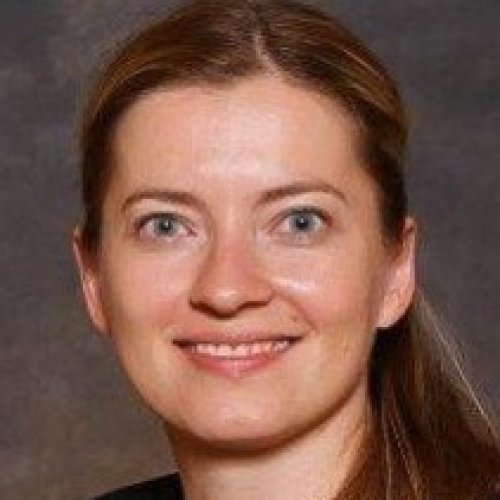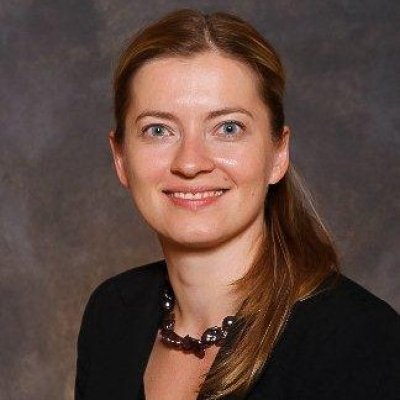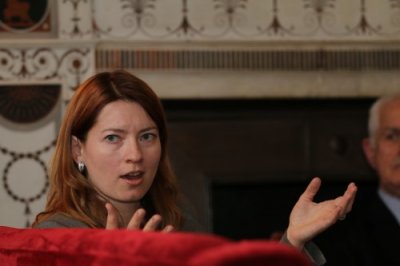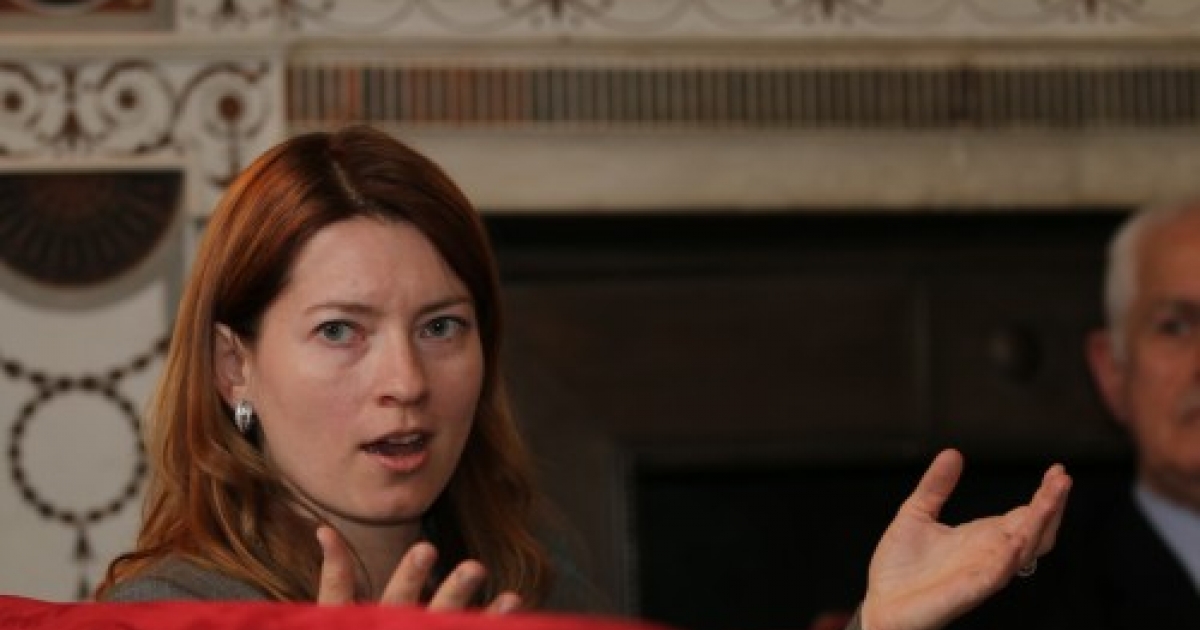Diane Erdei: “With Great Power Comes Greater Responsibility”
What the past decade brought is an amplification of our natural tendency to network through broad access to internet and social media, which enabled us a vaster access and opened up collaboration venues to globally active players. The success of social media re-affirms to me how natural it is for us to seek out connections and information, absorb, share and trade knowledge on a larger geographical scale and at a faster pace. We live now in an age where global footprints are part of our daily lives. Businesses oftentimes have global operations, where international teams collaborate on daily basis. The Arab Spring in Libya, Egypt and Tunisia were deemed to have been initiated in large part through Twitter and Facebook which enabled channels of information in an environment that otherwise wouldn’t allow for a free exchange of opinion. By using smart phones, everyone can become a news correspondent and share events with the world. We feel comfortable crowd sourcing projects across the globe. We partner up to work online on open source projects with people we never physically met. Over and over again, we re-affirm that we are built to be boundary less and interconnected as parts of a global conscience and mind. My hope is that we will leverage being part of social networks to connect and collaborate, to foster joint creative approaches for forward thinking and to solve world’s problems and challenges by working together.
GT: Collective Wisdom: Do you believe in it and how do you define it?
DE: Collective Wisdom was and still is a useful means that helps us to take our every days live decisions intuitively and while respecting the context without having to reflect every little ramification that could be implied. We are conditioned to act upon a fabric of social conventions from immemorial times when our survival as individuals depended on the group, on the “many”. Our brain is designed to quickly sort new information against information we already acquired and sort our environment into friendly or threatening. This enabled us to survive and is the reason we are still here. We clearly cannot experience everything ourselves and therefore we oftentimes readily accept information which others or society volunteer to us. But in our need to keep things simple and make quick decisions, we should remember the saying that “even if 1000 people are wrong, it still doesn’t make something right”. I think that we should keep our eyes open to what is generally accepted, and not forget to ask the question “why”. It was collective wisdom in the antiquity that the Earth was flat and if people didn’t pay attention, they could fall off it into space. Galileo Galilei spent his final years of life under house arrest trying to prove geocentrism wrong. Collective “wisdom” sometimes builds bias towards gender, age, race, religion, and so much more. I therefore see collective wisdom as a status of current understanding of our society which in certain cases only holds true until challenged. We should remember to step back and sanity check the information we have at hand from time to time, identify and challenge our biases, make our own experiences and rationally decide for ourselves if we really want to act upon it. And as we do so, we may realize that what we named “wisdom”, and may just be a step in our thought process as humans and as a society.
Our day to day lives are filled with contradictions: a couple of examples are the incredible amount of readily available information, yet the lesser certainty in our environment. We deeply need to collaborate to design new products and jointly build the future. Yet online collaboration of virtual teams, oftentimes coming together only to work on a specific project and address a particular challenge opens up questions about intellectual property rights and the gates to cyber-attacks. I don’t think we cannot escape contradictions, us closing our eyes on them does not make them disappear. Those of us welcoming them as an additional source of ideas, acting inclusively and respecting the fact that others may also be right, will be the ones who will proactively define the new trends and shape the future. As Intel’s strategic futurist, Brian David Johnson says: “It’s okay to have two opposing ideas, because that’s how the future looks like”.
GT: Is it imperative for companies to construct new business models which will help them harness the power of the digital world?
DE: Being technology-savvy and integrating operations with the digital world have become a must in the world we operate in today. There is an immense power of collaboration and problem-solving opportunity through the digital world. Those accessing it as another source of strength and information will find themselves as having an additional competitive edge and advantage towards competition. A rather direct application of companies looking to harness the power of the digital world lays in the first steps we are taking to analyse the data generated by the millions of hardware devices already installed across the world as well as preparing the new hardware to “intelligently link in” with the existing fleets of equipment. Companies are actively working on connecting machines with sensors, collecting and analysing “big data” to drive increased productivity gains. This “internet of things”, which is currently considered as the 3rd human revolution (after the industrial evolution and the invention of the internet), is forecasted to add up to $10-15 trillion by 2030 to the global GDP. The potential of this additional GDP creation is the equivalent of an US-size economy as of today (see the Industrial Internet paper published by Peter C. Evans and Marco Annunziata, General Electric). Being able to perform analytics and connect data points in innovative manners, as well as being “fluent” in using the digital world, will be a key success skill in tomorrow’s work force and businesses.
GT: Has the model of approaching and collecting information changed because of social networks?
DE: I believe it has and it continues to change as we go. The era of the few holding the monopoly on information is passé. Also the fact that through social media and networks, virtually each and every one of us can become a provider of information is liberalizing de facto its generation and consumption. I find it fascinating that medical polls show increasingly more participation from the side of the patients in their own diagnosis and treatment. We start to strike a dialogue between “commoners” and “experts”, we try to understand versus just take the opinion of others and doing as told. I find this as a very healthy attitude and hope that we apply it increasingly in all domains of our life. I also go back to my earlier point: given that we do have such broad access to information, we should choose to stay aware and make our own mind, considering multiple sources and vetting points of view. Acting on incomplete or incorrect information can oftentimes be more detrimental than acting on no information. While “a common view” may be easier to just take and run with, we should ask ourselves if we don’t miss key data points by just not asking a second question.
GT: Who are the new influencers of our world: opinion leaders, opinion makers or audiences?
DE: This is an interesting question. I believe everyone can be an influencer. Sometimes you influence willingly, sometimes people create trends just by accident. Everyone blogs today! Being an influencer means creating and bringing trends to the main stream attention, means that others respect your opinion and react to it. What amplifies the dynamic though is the power of social media. The audiences are now global, the access to information, regardless of its quality, instantaneous. But as the saying goes, “with great power, comes great responsibility”, so since we can all drive opinion, let’s use our power of influencing the world towards generating positive change, driving social and technological progress and helping those in need. I keep thinking: we’re about 7 billion people today on the planet. If each and every one of us has only 1 great idea during our lifetimes, we could generate 7 billion great ideas, without counting the cross-pollination which automatically occurs when people collaborate. Now that is what I call opportunity!
GT: What does “global” mean to you? Abolition of borders? Way of thinking? Emergence of New Markets? A new model of governance?
DE: For me “global” means thinking in bigger pictures, truly being able to function on various continents, in various countries and cultures. It means understanding geopolitics, interdependences, successfully working in and with international teams. Globalization is a very broad term, but I find its best outcome to be, beyond mobility, incremental business dollars and great travelling, a better understanding of others, hopefully respect, ideally gaining new perspectives. It should help us make our own opinion of situations and people instead of just following the “public opinion”. It gives us hands-on experiences to challenge situations and realities based on our direct experiences. It shows us that the sum of the total is larger than the sum of its parts in isolation. Thinking globally should make us see that nothing is actually done in isolation and that actions may have an impact beyond the immediate geography or human network we are aware of. If we think at the most fundamental level, we all drink the same water and we all breathe the same air. Every day, no exceptions granted. Pollution needs no passport to cross borders. The effects of nuclear accidents spread across countries, thousands of kilometres apart. The economy is deeply interlinked and international. Food and industrial products travel thousands of miles across the globe on daily basis. Economic crisis in a country or continent reverberates far beyond their borders. Contagious diseases become harder to contain due to intense international travelling. Globalization means to me a giant collective interlinked community. And therefore, thinking globally means to me acting responsibly and respectfully with and towards self and the others.

Diane Erdei
Corporate VP, Bertelsmann
Diane Erdei is VP Controlling and Sourcing Finance Transformation for Bertelsmann. She is currently based in Gütersloh, Germany. With more than 10 years of deep professional experience in commercial and finance areas, Diane is currently engaged in driving Operational Excellence in Controlling and Sourcing Finance by actively shaping the global Controlling 2.0 vision and transforming processes across the Bertelsmann company. Prior to joining Bertelsmann, Diane held a variety of roles during her 8 years with General Electric (GE) and 3 years with the Raiffeisen Group developing broad expertise both on the Capital as well as on the Industrial side. In her latest role as Head of Financial Planning and Analysis for GE Energy Germany, GE Austria and Switzerland, she supported the design of the company’s regional growth strategy from a financial perspective and in parallel led strategic cross-functional projects. Through her work, she covered, worked and travelled to Europe, North and Latin America, and Asia. Diane is an alumna of the General Electric Corporate Audit Staff (CAS), one of the best global leadership programs for experienced finance professionals. An energizing leader, Diane is a passionate promoter and advocate of diversity, as well as a strong people developer. She was recently actively engaged in GE’s Women’s Network as a regional leader for Germany, Austria and Switzerland where she addressed challenges faced by parents in balancing careers and family by actively leading a Parental Leave initiative in her region. Through this initiative she aimed to drive employee engagement in GE. Diane studied at the Diplomatic Academy of Vienna and University Paris 1 Sorbonne and holds a double master degree in International Relations and European Law.
Published: 22/05/2014




